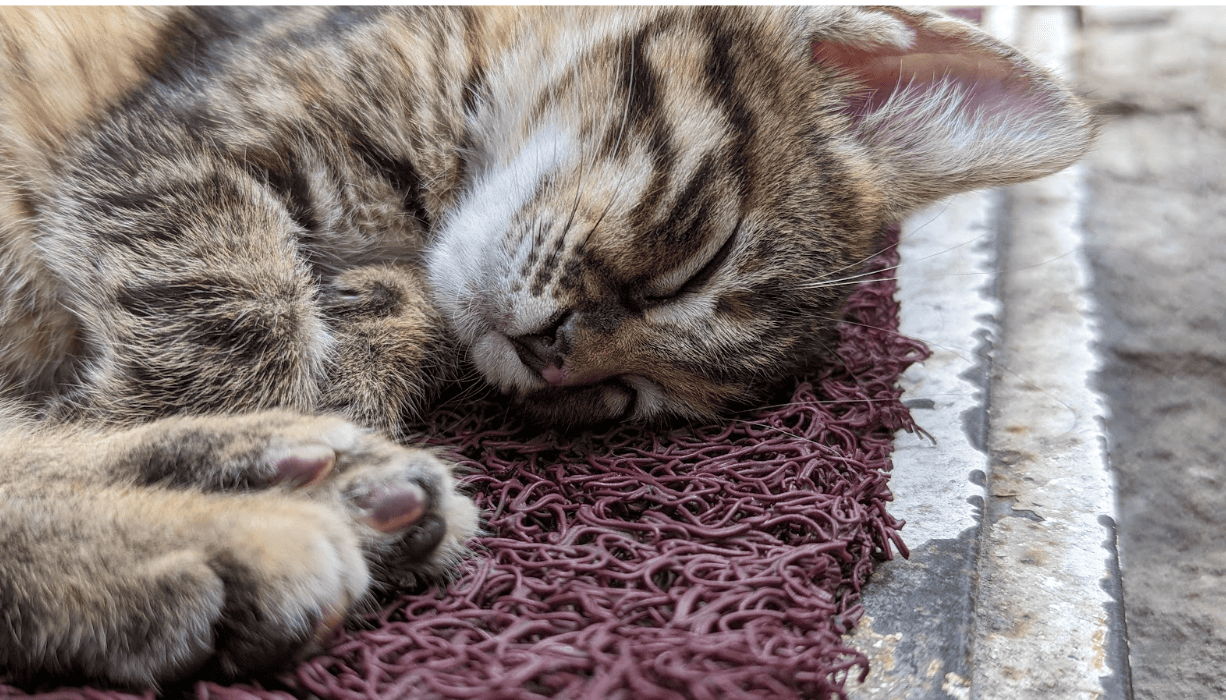As I got out of the Uber from the Istanbul airport, I was greeted in the city by a stray cat—the first of many feline interactions during my two weeks traveling through Turkey.
This is no surprise considering that “Istanbul is the capital of cats”, as stated by Istanbul mayor Ekrem Imamgolu. Currently, the estimated number of cats in Istanbul ranges from 125,000-750,000 with up to 4 million strays throughout Turkey.
In the heart of Turkey, the feline inhabitants that grace its streets are more than just stray cats; they are living symbols of a unique communal pet culture and an enduring bond between humans and their beloved communal pets. These animals have become intertwined with the nation’s history, religion, and politics.
The history of cats in Turkey is connected to Islam and their practical role during the Ottoman Empire. In Islamic culture, cats hold a special status as ritually clean animals, with Hadith stories highlighting Prophet Mohammed’s affection for these creatures.
In the context of the Ottoman Empire, cats played a crucial role in controlling rat populations, thereby curbing the spread of diseases and minimizing food loss. Moreover, they played a vital part in safeguarding books, as their presence deterred rats from consuming the pages of valuable texts.
This historical background shapes the ongoing relationship between cats and Turkish communities. During my visit, I witnessed a prevailing culture of communal care for stray cats. People routinely left food and water outside their homes and expressed affection for these feline companions.
Even during the COVID-19 lockdown, the Turkish interior ministry issued directives for local councils to ensure that stray animals were well-fed, emphasizing the importance of their well-being. Justice Minister Abdulhamit Gul took to Twitter, urging us to “not abandon our animal friends during these challenging times.”
Notably, unlike in many other countries, feeding stray cats in restaurants or public places was generally not stigmatized. This frequent human interaction resulted in the cats often being very friendly, displaying a fondness for human affection.
Turkish cats have not only found their place within the country’s streets, but have also found themselves intertwined with Turkish politics. The growing prominence of animal welfare as a political issue is exemplified by the words of Ahmet Kemal Senpolat, a lawyer who is president of the Animal Rights Federation, “the issue became so popular, now politicians cannot afford to alienate animal lovers anymore.”
Turkey’s “no kill, no capture” policy, encapsulated by the saying, “If you kill a cat, you need to build a mosque to be forgiven by God,” underscores the profound respect for feline life. In 2021, Turkey enacted a law that redefines animals as living beings, reflecting a significant shift in attitudes. The law penalizes the mistreatment, torture, or neglect of animals with jail time, marking a critical step in recognizing animal welfare as a political issue.
These efforts have also been displayed on a local level. In early 2023, the city of Diyarbakır took a remarkable initiative by constructing 200 wooden houses and placing them in buildings, workplaces, gardens, and parks to offer shelter and improved living conditions for stray animals, particularly during the colder seasons. The city also plans to initiate a woodworking workshop, encouraging local involvement in supporting this noble cause. These developments demonstrate not only a cultural appreciation for Turkish cats but also the increasing influence of animal welfare within the realm of Turkish politics.
As we’ve unveiled this remarkable tale of Turkish cats, we’ve discovered that they are more than just animals; they represent a cultural tapestry that blends the past and present. From the historical reverence rooted in Islam and the Ottoman Empire to the contemporary culture of communal care and political recognition, these cats embody the values of compassion, empathy, and unity. The endearing presence of Turkish cats serves as a testament to the enduring power of human-animal bonds and the remarkable way in which a nation has embraced them as cherished communal pets, leaving an indelible pawprint on the heart of Turkey and its people.

Other posts that may interest you:
- Local Victories for Turkish Opposition — A Sign of Hope?
- Are France and Japan a Mismatch Made in Heaven?
- Mes yeux sont comme cette île
- A Reflection on Dark Tourism
- Cadavre Exquis : Goodbye stranger
Discover more from The Sundial Press
Subscribe to get the latest posts sent to your email.





